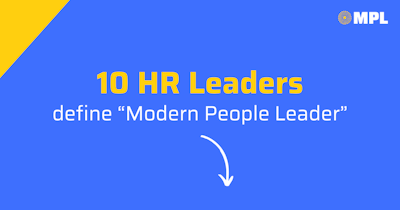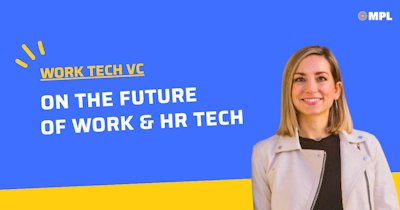In the ever-evolving landscape of work, the term "hybrid remote work" has emerged as a pivotal concept. But what exactly does it entail, and how is it revolutionizing our approach to work? In this comprehensive exploration, we delve deep into the world of hybrid remote work with insights and examples from our MPL conversation with Darren Murph, an authority on the subject from GitLab.
Defining Hybrid Remote Work
The workplace has undergone a radical transformation in recent years, largely accelerated by unforeseen global events. Remote work, once an exception, has become a standard practice for many organizations. Within this shift, the idea of "hybrid remote work" has risen to prominence.
So, what does hybrid remote work entail? At its core, it's a work arrangement that blends the advantages of remote work with the familiarity of in-person office experiences. It's about striking a delicate equilibrium between working from a traditional office and working remotely. This concept has gained traction as organizations strive to adapt to the ever-changing needs and preferences of their employees.
The New Era of Flexibility
The concept of hybrid remote work introduces an unprecedented level of flexibility into our work lives. It's no longer a binary choice between being tethered to a physical office or completely detached from it. Instead, employees are empowered to craft a work routine that suits their unique circumstances.
Darren Murph, an expert in this field, offers valuable insights into navigating this new era of flexibility. He stresses the importance of self-investment, urging individuals to dedicate as little as 20-30 minutes a week to learning and self-improvement. It's a practice that can lead to profound, life-changing results over time, particularly in a hybrid remote work environment where self-discipline and time management are essential.
Embracing the "Tail End" Perspective
In the pursuit of understanding hybrid remote work, it's beneficial to adopt a broader perspective on life itself. Darren Murph introduced the "Tail End" concept from the blog "Wait But Why." This intriguing notion encourages us to cherish each moment, no matter how seemingly insignificant, as it contributes to the rich tapestry of our lives.
The "Tail End" perspective prompts us to realize that life is comprised of a finite number of moments, and we should make the most of each one. Even in a hybrid remote work setting, where the boundaries between professional and personal life can blur, this perspective reminds us to savor every experience.
Navigating the Challenges of a Remote-First Culture
Transitioning to a remote-first culture is not without its share of challenges, as Darren Murph has illuminated. One of the foremost challenges is the need for continuous reinforcement of principles, particularly in rapidly growing organizations. Leaders must ensure that these principles are not only communicated but deeply ingrained within the company's culture.
A key component of this reinforcement lies in documentation. Documentation is not merely about preserving information; it's about making it accessible and actionable for all team members, regardless of their geographical location. GitLab, for instance, has adopted an approach where their handbook serves as the operating manual for the entire company, ensuring that everyone has access to a single source of truth.
The Power of Documentation in Hybrid Remote Work
Documentation emerges as a linchpin in the successful implementation of hybrid remote work. In the context of GitLab, documentation is referred to as "handbook first." This mindset emphasizes the importance of documenting processes, guidelines, and best practices in a central repository. It's a strategic approach that not only preserves knowledge but also streamlines operations and enhances collaboration.
Hybrid remote work amplifies the significance of documentation. When teams are dispersed across different time zones and locations, having a well-structured and easily accessible repository of information becomes pivotal. Documentation becomes the backbone of a remote-first culture, ensuring that every team member can access critical data and contribute effectively.
Embracing Change: Overcoming Resistance
One of the most significant challenges in the adoption of hybrid remote work is resistance to change. Many leaders may have had less-than-ideal experiences with remote work in the past, which colors their perception of the concept. However, Darren Murph urges organizations to view the current era as an opportunity for reinvention.
The pandemic has, in essence, provided leaders with a "permission slip" to experiment and explore new approaches to work. Embracing this change is not just about compliance; it's about seizing a unique opportunity to reshape the way teams function. By doing so, organizations can position themselves for long-term success and adaptability in an ever-shifting landscape.
The Art of Change Management
Managing change effectively is an art in itself. It requires a delicate balance between acknowledging past experiences and embracing a forward-thinking mindset. Here are some strategies to navigate the resistance to change:
- Transparent Communication: Open and honest communication is paramount. Leaders should explain the rationale behind the shift to hybrid remote work, emphasizing the benefits it offers to both the organization and individual employees.
- Pilot Programs: Implementing small-scale pilot programs allows organizations to test the waters without committing entirely. This approach can help build confidence and gather valuable feedback.
- Leadership Buy-In: Leaders must lead by example and actively participate in the new work model. Their endorsement can significantly influence the acceptance of change.
- Employee Involvement: Encourage employees to actively participate in the transition. Their input and suggestions can shape the implementation of hybrid remote work, making it a more inclusive process.
- Continuous Feedback: Establish mechanisms for ongoing feedback and evaluation. This iterative approach allows for fine-tuning and adjustments based on real-world experiences.
Designing Your Work Lifestyle
A fundamental aspect of hybrid remote work is its capacity to empower employees to design their work lifestyles. GitLab, among other forward-thinking organizations, actively encourages employees to think creatively about where and how they work.
Examples of Unique Work Lifestyles
Nomadic Living: In the age of hybrid remote work, some employees have chosen to embrace a nomadic lifestyle. They've invested in campervans and travel the world while continuing to fulfill their professional responsibilities. Work accompanies them, seamlessly integrating into their adventurous lives.
Military Spouses: For military spouses, the traditional office environment can pose significant challenges due to frequent relocations. Hybrid remote work offers a lifeline, enabling them to maintain their careers despite shifting geographic locations.
Custom Workspaces: The concept of hybrid remote work extends beyond physical mobility. Some employees have taken advantage of the flexibility to create custom workspaces tailored to their unique needs. This might involve designing a home office optimized for productivity or even seeking out specialized coworking spaces.
The Power of Examples
Examples like these serve as powerful catalysts for reimagining work lifestyles. They showcase the myriad possibilities that hybrid remote work affords and inspire individuals to explore unconventional approaches to their professional lives. By celebrating these stories, organizations can foster a culture of innovation and adaptability.
The Future of Work: Adapting to Hybrid Remote Work
In conclusion, hybrid remote work represents a pivotal shift in the way we approach work. It's not merely a response to external circumstances; it's a transformative opportunity for both individuals and organizations. As we navigate this new era of work-life flexibility, certain key principles emerge:
- Invest in Self: Dedicate time to self-improvement and personal growth, even if it's just a few minutes a week. This investment pays dividends in a hybrid remote work environment.
- Cherish Every Moment: Embrace the "Tail End" perspective by savoring each moment, both in your professional and personal life.
- Prioritize Documentation: Establish a robust documentation infrastructure that ensures everyone has access to critical information, regardless of their location.
- Embrace Change: Overcome resistance to change by communicating transparently, involving employees in the process, and iterating based on feedback.
- Design Your Work Lifestyle: Seize the opportunity to craft a work lifestyle that aligns with your unique circumstances and aspirations.
As organizations adapt to this new era of flexibility, they must prioritize innovation, inclusivity, and the well-being of their employees. Hybrid remote work is not just a trend; it's a paradigm shift that demands a thoughtful and forward-looking approach. Embracing this change can lead to a future of work that is more agile, fulfilling, and sustainable for all.
To listen to the full episode with Darren, click here! 🔊🔊🔊



